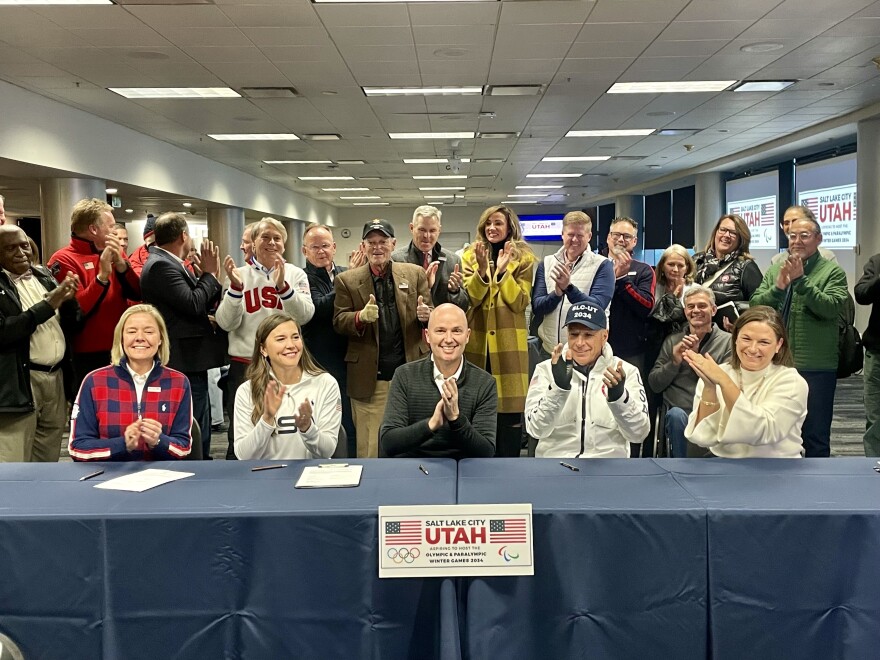Between personnel, venue infrastructure and other expenses, operations for the Olympics are expected to cost over $2.8 billion (in 2034 USD). That’s about the same as the 2002 Games, adjusted for inflation.
It’s part of an overall $4 billion budget that includes revenue sharing with the U.S. Olympic & Paralympic Committee, sponsorships, ticket and hotel sales, and funding for sport and youth programs. No public taxpayer dollars will be used, according to Brett Hopkins, chief operating officer and chief financial officer for Utah’s 2034 bid team.
“Our ticket sales and hospitality target is $1.19 billion. This is a very big number,” Hopkins said. “We will have quite a few more events and therefore tickets to sell versus 2002, and this number allows us to fund these Games privately, if you will, without reliance on public funds.”
Compared to the 2002 Games in Salt Lake City, the 2034 Olympics will have 40% more events. Organizers don’t plan to construct any new venues, and will instead utilize locations maintained since 2002, such as the Utah Olympic Park and Soldier Hollow Nordic Center.
“Yes, there will be some very high demand tickets that will be expensive,” Hopkins said. “But there are also some lower end tickets that are very affordable, and we’ll have about 34,000 of those tickets that’ll be in the $34 range.”
The new bid documents also provide details about venues and their planned spectator capacity. Park City Mountain and Deer Valley, which will host a variety of freestyle skiing and snowboarding events, are expected to host crowds of 12,000 each. Utah Olympic Park can host 8,000 people for downhill skiing and 15,000 for ski jumping.
The capacity for Soldier Hollow, which will host cross country skiing, is 15,000. The big air competition planned for downtown Salt Lake City can accommodate 25,000, according to the bid committee. Most of the tickets for events are standing room only.
To move people around for such a large-scale event, organizers were also asked by the International Olympic Committee to provide transportation details.
Bid documents state there is an opportunity to explore a bus rapid transit (BRT) connection between Park City and Salt Lake City. More broadly, it says organizers plan to expand the use of public transit for spectator transportation.
This is an important week for Utah’s Olympic bid committee, which is expecting a final announcement about the 2034 Games next month. On Wednesday in Switzerland IOC officials will vote whether or not to recommend Salt Lake City’s bid for an election in July.
If selected, the IOC’s executive board will vote in Paris in the days leading up to the Summer Olympics. Salt Lake City officials have requested an election on the final day of the session, July 24, to coincide with Pioneer Day in Utah.
The IOC is widely expected to name Salt Lake City as host, along with the French Alps for 2030. The two contenders are not facing opposition, and are the only bids officially recognized by the IOC.


